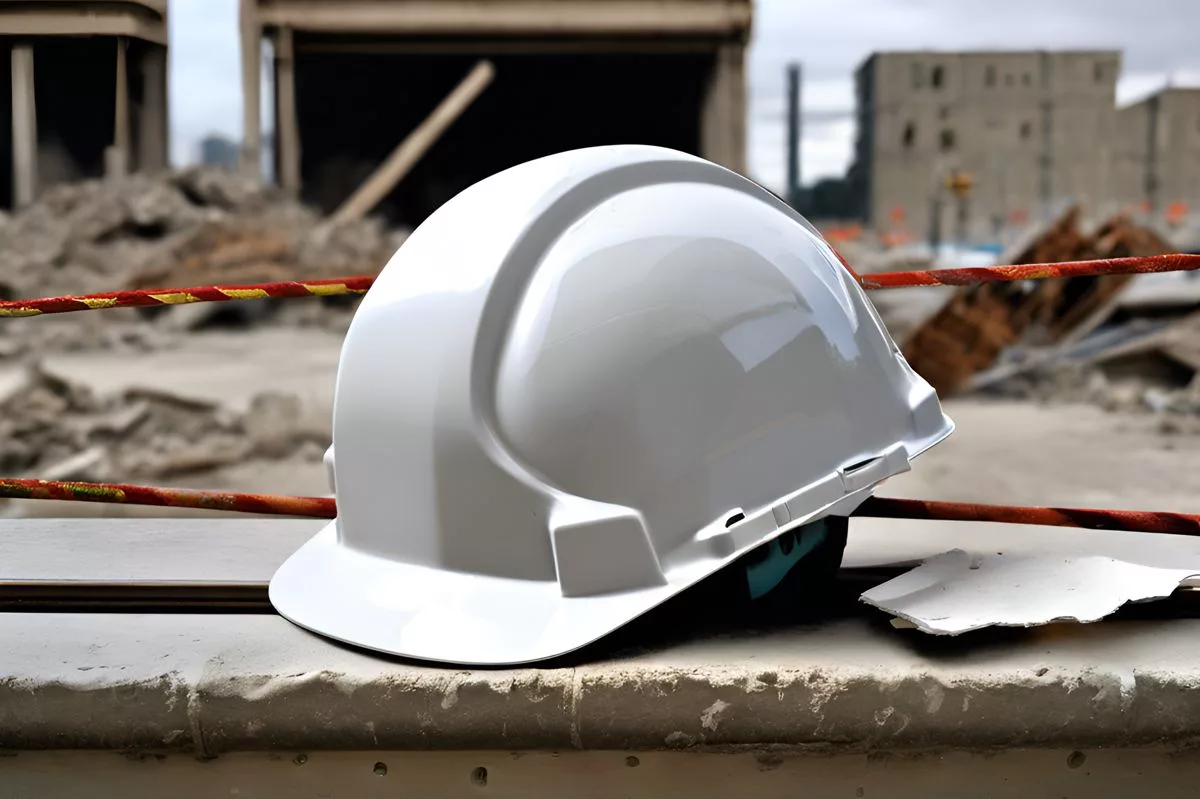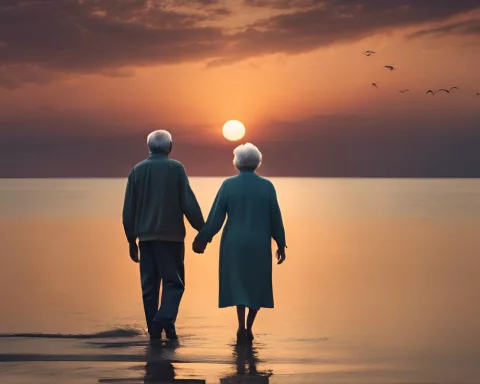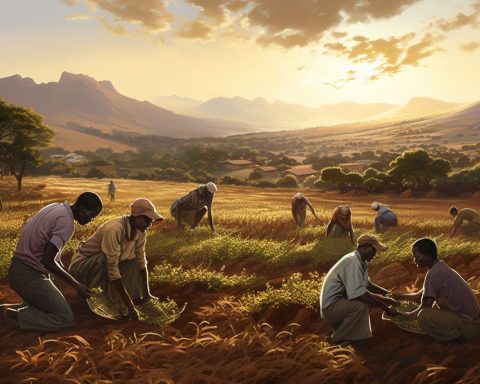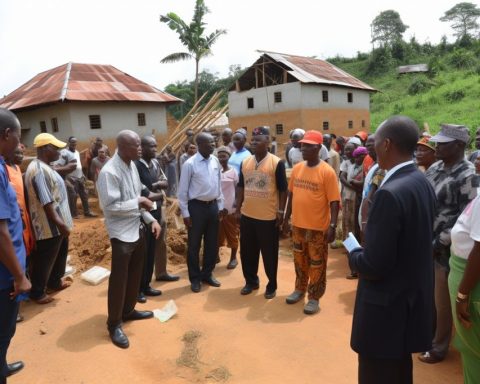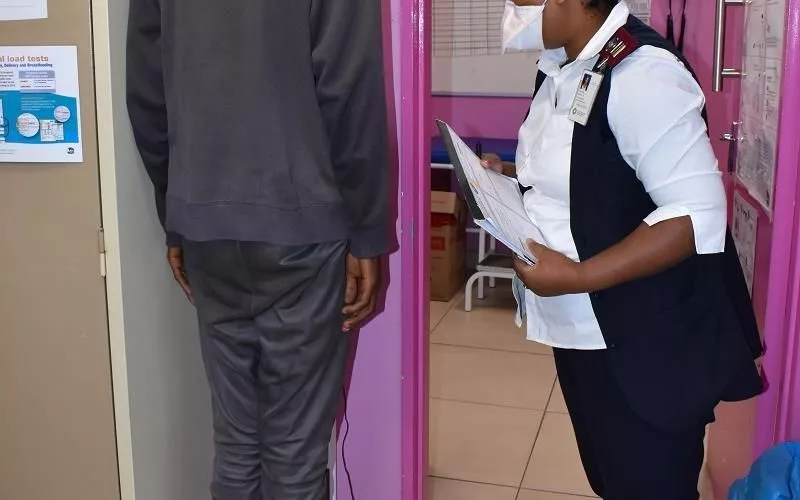President Cyril Ramaphosa has pledged to provide necessary compensation to workers injured in a building collapse in George, Western Cape. The government will also ensure those responsible are brought to account. The President visited the collapse site and engaged with various parties involved in the aftermath, including Western Cape Premier Alan Winde, to address the crisis. The tragedy has highlighted the importance of building safety and labour rights, but also the resilience and unity of the community in the face of adversity.
Government Support for Victims of Construction Collapse
President Cyril Ramaphosa assured that the government would provide necessary compensation to the workers injured in a disastrous building collapse in George, Western Cape. The President’s determination did not waver, and he reiterated his assurance of ongoing and continued support for the families impacted by the tragedy. The compensation for the workers injured during work is available under the labor laws of South Africa. Additionally, the government promised to ensure that those responsible for this tragedy are brought to account.
President Cyril Ramaphosa, in a bold move, recently assured that the government would provide necessary compensation to the workers injured in a disastrous building collapse in George, Western Cape. The mishap took place on Monday, 6 May and unfolded severe tragedy by taking away several lives. The community and the nation were enveloped in sorrow following this incident. The government’s commitment to help in the burial of those who lost their lives presents a deep act of empathy from the state.
An Empathetic Visit and Assurance
On 16 May, Thursday, President Ramaphosa made a visit to the collapse site situated at 75 Victoria Street in George. The five-story building had been reduced to rubble due to the mishap. He conducted briefings with various parties involved in the aftermath of the disaster during this visit. This critical interaction engaged several Ministers and Western Cape Premier Alan Winde, forging a unified approach to address the crisis.
In these trying times, the President’s determination did not waver. He reiterated his assurance of ongoing and continued support for the families impacted by the tragedy. This includes the families who suffered the loss of their loved ones and those who have family members presently admitted in hospitals due to injuries from the collapse.
Compensation and Accountability
An important point brought to attention by the President regarding the compensation is ingrained in the labour laws of South Africa. As per these laws, if a worker is injured, contracts a disease, or passes away during work, the worker or their dependents are eligible to file a claim from the Compensation Fund. This fund is designed to provide financial relief to permanent and casual workers, trainees, and apprentices who lose their income due to work-related injuries or illnesses.
Additionally, the President, as the state’s leader, affirmed that the government would spare no pains to ensure that those responsible for this tragedy are brought to account.
A United Front and Social Responsibility
Extending his condolences to the families grieving their loss, the President underlined that the primary aim is to save lives, provide care for the injured, and respectfully honour the deceased. His remarks reflected the grim reality of the situation: the need to manage the repatriation and burial of those who had lost their lives.
Gert Niehaus from AVBOB, a South African insurance corporation, displayed a commendable act of social responsibility by confirming their organization’s involvement in the burial process. Niehaus clarified that while AVBOB would aid with the burial process, the transportation costs for funerals taking place in other provinces have to be borne by the families.
Lessons Learned from the Tragedy
The sequence of events in George serves as a harsh reminder of the significance of building safety and labour rights. However, the community’s resilience and unity remain visible in the face of the tragedy. As we anticipate further updates, there is a feeling of a nation consolidating in the face of adversity, standing in unity with the affected families and aiming to learn and improve from this devastating incident.
1. What happened in George, Western Cape, and who was involved?
A building collapse took place on Monday, 6 May in George, Western Cape, which resulted in the loss of several lives. Workers and their families were impacted by the tragedy.
2. What is the government doing to support the victims and their families?
President Cyril Ramaphosa has pledged to provide necessary compensation to workers injured in the building collapse and offer support to the families impacted by the tragedy. The government has also promised to ensure that those responsible for the collapse are brought to account.
3. What is the compensation fund, and who is eligible for it?
The compensation fund is a relief fund designed to provide financial aid to workers who lose their income due to work-related injuries or illnesses. Eligible parties include permanent and casual workers, trainees, and apprentices, and their dependents.
4. How is the AVBOB corporation getting involved in the situation?
AVBOB, a South African insurance corporation, has offered to assist with the burial process of those who lost their lives in the collapse. However, transportation costs for funerals taking place in other provinces have to be borne by the families.
5. What lessons can be learned from this tragedy?
The collapse highlights the importance of building safety and labor rights. It also showed the resilience and unity of the community in the face of adversity. There is an opportunity to learn from this tragedy and improve in the future.
6. What was President Ramaphosa’s visit to the collapse site like, and who did he meet with?
President Ramaphosa visited the collapse site on 16 May, where he met with various parties involved in the aftermath of the disaster. His interactions included several Ministers and Western Cape Premier Alan Winde, creating a unified approach to address the crisis.

